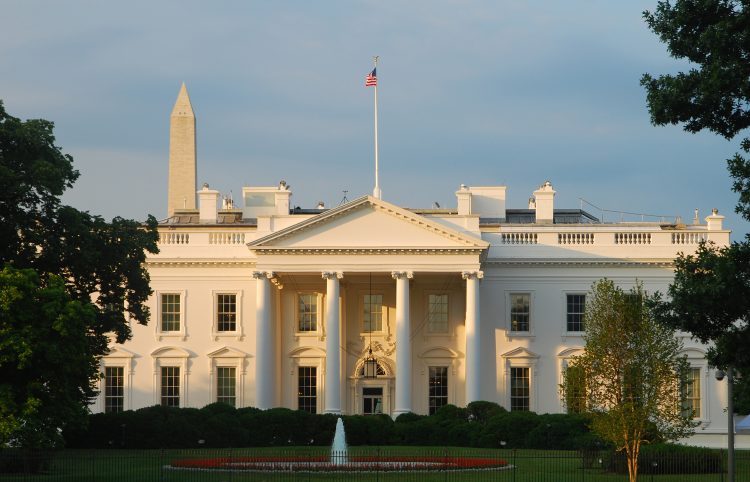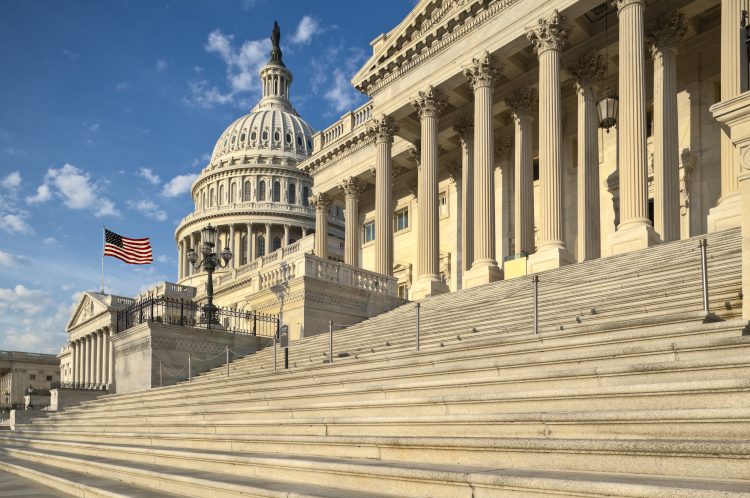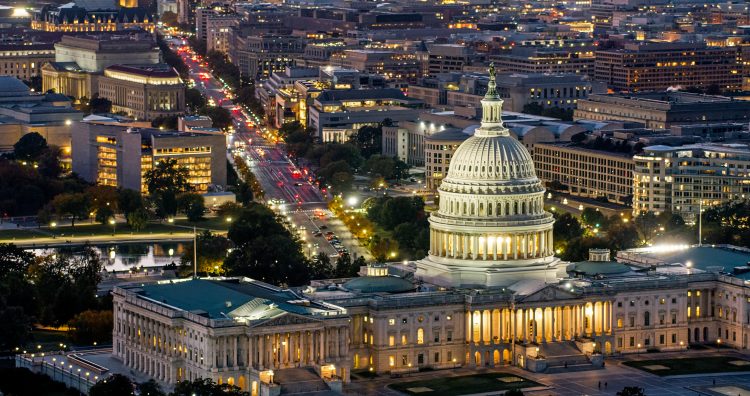This week on Facing the Future, we heard from two tax experts with different ideological perspectives who have been following congressional action on the One Big Beautiful Bill Act (OBBBA). David S. Mitchell is a senior fellow for tax and regulatory policy at the Washington Center for Equitable Growth and Kyle Pomerleau is a senior fellow at the American Enterprise Institute. While they disagree on many economic policy questions, they share concerns about the OBBBA, including its large deficit increase and its minimal, or possibly negative, economic impact.
“Tax reform can enhance economic output and increase the well-being of households through encouraging investment and labor supply,” Pomerleau said. “But I don’t think, in the context of this bill, we’re really talking about tax reform. We’re talking primarily about extending the individual provisions of the Tax Cuts and Jobs Act. Those individual provisions are in some ways good simplifications, but not really all that pro-growth.”
The OBBBA also contains many new tax cuts based on President Trump’s campaign promises, but Pomerleau said, “Those are certainly not pro-growth, and I would call them more like anti-tax reform. They move in the wrong direction. They increase complexity, and in some cases might be anti-growth in certain ways. These proposals include no taxes on tips, no taxes on overtime, reintroducing a deduction for auto loan interest paid on certain automobile purchases and additional tax cuts for seniors.”
Mitchell added, “The current macroeconomic picture is not one where an economist would say we need to cut taxes by trillions of dollars. We’re at close to full employment. If anything, inflationary pressures are on the positive side. And so throwing trillions of dollars into the economy at the moment just doesn’t seem sensible on top of the fiscal situation.”
As an example of something to drop from the OBBBA, they cited the Section 199A Qualified Business Income Deduction, enacted as part of the Tax Cut and Jobs Act (TCJA). Mitchell described how this tax break adds complexity to the tax code, often results in windfalls for wealthier tax payers and does little if anything to promote economic growth.
Pomerleau explained that Section 199A “allows individuals with qualified business income to deduct 20% of that against their taxable income. Qualified business income is the income you’d earn as a sole proprietor, partnership or an S Corporation, not corporate income. It’s a pretty large provision that reduces revenue by about $700 billion or $800 billion dollars over a decade. It’s very politically popular, but is generally disliked across the policy community. There’s not a lot of research showing that 199A was successful in encouraging investment. It ended up just being a windfall for certain business owners.”
Mitchell and Pomerleau added some suggestions for improving the OBBBA. “If their goal is to make this more pro-growth,” Pomerleau said, “they should scale back the size of the individual income tax cuts and they should scale back the campaign proposals. Right there you can reduce the cost of this bill significantly, and then focus instead on encouraging investment at the business level. I think they could do more there, and they could keep those provisions permanent. That would do much better in all of these models that have analyzed the one big, Beautiful Bill Act, and it would cost a whole lot less.”
Mitchell said, “If you wanted to extend the tax cuts for the middle class and for the lower class, that’s fine with me. You could cut it off at $400,000, and say above $400,000 you don’t get an extension of these tax cuts. Treasury did an analysis that it would be $1.8 trillion to do a tax cut like that [Note: CBO projects that the Senate version of the OBBBA would cut taxes by $4.5 trillion]. So just doing that alone would be less expensive and less harmful to the economy than what’s being proposed. The other thing that I would like to put back on the table is the corporate tax rate. We lowered it to such an extent in 2017 that we lost a lot of revenue for very little economic gain, and we see profit shifting overseas, multinationals doing lots of games, planning to move profits around that we could do a better job of cracking down on. So that would be a way to raise revenue without much of an efficiency cost and with positive distributional effects that would counteract some of the regressivity that we’re seeing right now.”
Hear more on Facing the Future. Concord Coalition Senior Advisor Bob Bixby hosts the program each week on WKXL in Concord N.H., and it is also available via podcast. Join us as The Concord Coalition team discusses issues relating to national fiscal policy with budget experts, industry leaders, and elected officials. Past broadcasts are available here. You can subscribe to the podcast on Spotify, Pandora, iTunes, Google Podcasts, Stitcher, or with an RSS feed. Follow Facing the Future on Facebook, and watch videos from past episodes on The Concord Coalition YouTube channel.
Continue Reading











